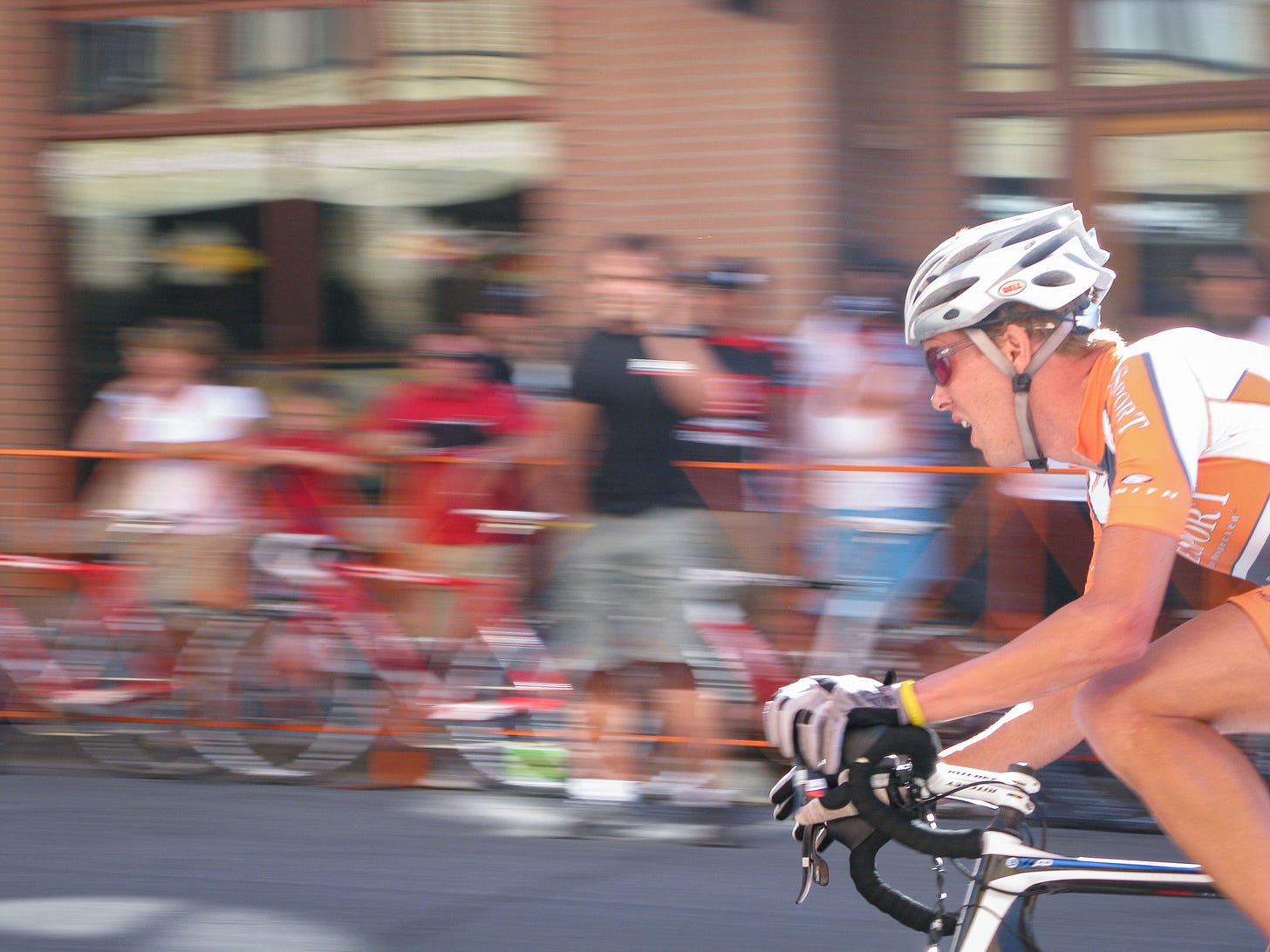The Small Pond
This is the second essay in POISON, written circa 2010.
/
A friend was invited to race for a composite team at the Tour of Utah this year. He's a very good rider, and I admire his attitude and ability. The field at the ToU was a step above. He knew he would get destroyed. His objective was to finish, to experience the whole from start to finish. I think he wanted to emerge transformed, to so utterly break himself that he could see his future with greater clarity ... but that's me saying what I would have wanted.
The other day he dropped an email with a few clues about his current state of mind, and I mined a piece of gold from within it that I think we can all learn from. Although he had been invited to race the Tour of Utah a couple of times before he had always declined.
"I didn't really want to see ... exactly what I knew. I have always been pretty content racing locally and finding success with very little risk."
I thought it was a sharp and necessary observation and quickly filtered it through my own experience before firing it back at him. The lesson from my first visit to Chamonix, which I made almost by accident since I was already in Europe with no need to get home, was twofold:
1) Wow, I'm actually pretty good at this climbing and soloing business
2) Shit, I am nowhere near as good as these guys and I have so far to go and I have to be where the best guys are to take that journey
I received enough positive feedback from that first experience to balance the ego damage and to accept the suffering that would come from jumping into the game with the biggest players in the sport. Most climbers, hell, most people never expose themselves to that fine balance of ability and opportunity tied to the challenge of "punching the Man Card."
Some haven't done the work locally—the definition of which changes with the context—in the first place so they go, line up for the real deal, get crushed, rush home to roll over, give up and find something else to do. Others don't see the opportunity because ego blinds them, "I can't possibly suck this badly," and then come either excuses and/or a quick return to the small pond that allowed the oversized ego to flourish in the first place. When someone exclaims, "I'm good," the next question I always ask is, "Compared to what?" And if one can't see through the murk of the pond he or she might remain blind to potential for an entire lifetime.
My friend went headfirst into the deep end with the Tour of Utah and fought to the finish through no small amount of suffering. Almost half the field dropped out or got cut out. He gave himself an opportunity. And he was right when he admitted that, at this point in his trajectory, racing locally is no longer an adventure or a lesson. And because it's not, I think it will be hard to find the clarity and motivation to evolve. He needs that bigger thing, not simply a different thing, but the logical progression to the higher level of a sport and experience into which he has already invested so much time and energy. Stay the course.
Switching interests, i.e. dressing a new hobby up as cross-training, is a handy way to recover motivation and stay fit but to go deeper into bike racing (or climbing) that new interest must be secondary. It can be a step on the pier that juts over deepening water but make no mistake — the water holds the treasure, the rest is distraction.
I urged him to, "Take the step. See what you can do."
My reply to him has been bouncing around in my head for a few days, distilled and hammered to a point by some difficult and personally incisive hours on my own bike. I understand what it took to commit to that race and more importantly I think I know what it cost to see it through. He was afraid, and had been, yet he took the step. He did it decisively—any other way would have ended differently—and he sustained it with commitment.
Commitment is the characteristic so few have and fewer will express but it is the most important asset a human being can deploy: commitment unlocks doors the dilettante doesn't know exist, it carries momentum when will alone flags, commitment illuminates the path. The committed step precisely while the hesitant and distracted stumble blindly. Commitment illuminates a depth the "enthusiast" can't see, much less understand. More and more often I ask, "What's the fucking point if the water's not deep?" Some days I tolerate the wading, and I am even motivated when a wader shows potential. Then I think, "If only this talent and energy could be tempered or focused by commitment ..." But the track record for that optimism so far is 100% failure and disappointment.
The reason they are dilettantes, enthusiasts and amateurs is because they can't or won't make a commitment to go as far as they could within the confines of the discipline — whatever it may be. And that's fine. Do a lot of different things. Explore. Taste. Test. Just don't dress it up as something else. And don't waste time pretending you have the will and desire, and want to, and can sacrifice and change in order to take the next step. If it's true there are many mentors and coaches who will go out of their way to help. If it is self-delusion then STFU.
My friend took that step. His soul was incinerated. He rises anew. Transformed.
Is that really what you want?



